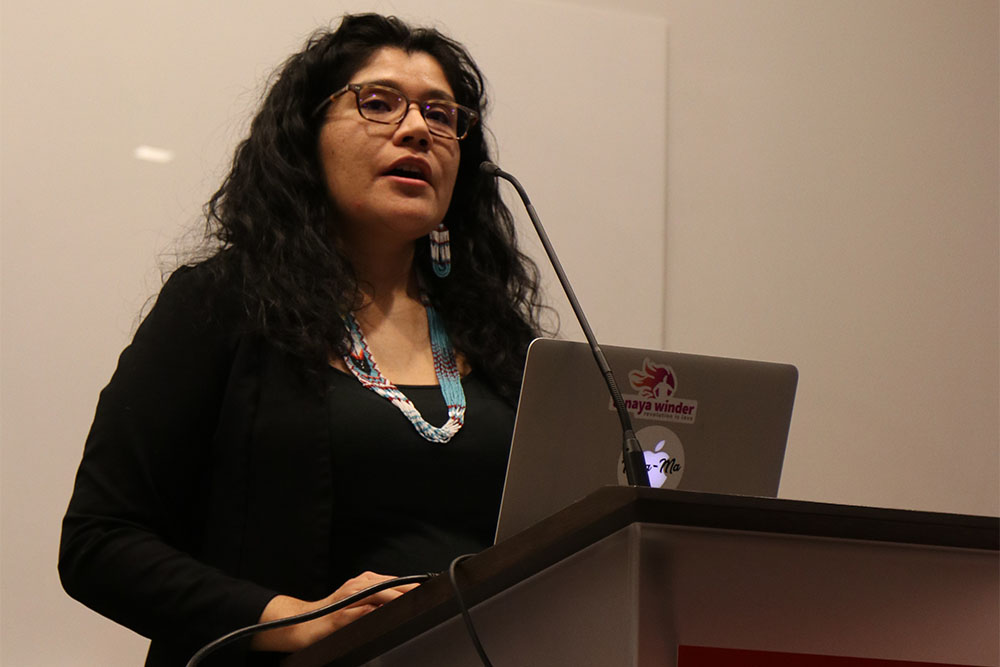Tanaya Winder Delivers NAHM Keynote

Jay Bate/Nubian Message
Kennysha Woods | Managing Editor
Tanaya Winder, performance poet, writer, musician, educator and author gave the keynote for Native American Heritage Month (NAHM) on Nov. 28 in Talley Student Union.
Concurring with the theme of NAHM—“Our Fire Still Burns”—Winder’s keynote, titled “Remember Her: We Are Still Singing,” discussed how lessons passed down from ancestors can serve as methods of personal and interpersonal development and healing.
“I’m here to talk about heart work, and about this fire that I think each of us has inside of us,” Winder said.
Winder began the keynote with an acknowledgement of ancestors and said, “Whatever background you have, we all have ancestors. We all have people in our family or bloodline who’ve passed on before us, that I believe are watching out for us all the time.”
“For me, as an indigenous person,” Winder continued, “everything our ancestors have done have purpose and meaning, and we can help that meaning live on in a continual practice of the lessons we’ve been taught.”
These lessons included stories, songs and ceremonies, and Winder structured each topic around lessons she had learned from her own family. As Winder told stories of her own life and that of family members, she encouraged the audience to think about their own stories—like where they take root, which ones they remember and hold onto and how outer spaces and narratives came into play.
“When I think about the seeds—the stories we carry,” said Winder, “I like to think, ‘Well what do I want my impact to be in this world, given where I come from, given what I know, given what I want to do.’”
Ultimately, all of the lessons Winder has learned shape her voice and fuel the work she does in spoken word, music and support for Native students today. “Part of me wanting to light my fire is honoring where my voice comes from,” she said.
Winder implored to audience to understand how individuals are shaped by their stories and how individuals define their impact on the earth. “Where does your fire come from? Where does your light come from?” she asked.
Many of the students in attendance were part of the University Scholars program. Tyana Thorne, a first-year studying psychology, said, “I knew that Native Americans struggled. They kind of have the same struggles as African Americans in America—it might even be worse.”
Samuel Mosby, a second-year studying mechanical engineering, was particularly taken by Winder’s personality and delivery.
“She wanted people to know,” Mosby said. “She was telling personal stories because she wanted people to understand what they go through. They want people to have open minds about everything they face. Even though we heard just one story of one person, it’s shared amongst so many people of Native American heritage.”
Mosby continued, “With a college that promotes diversity and prides itself on the diversity of its students, having these events is priceless. Being able to share these stories with students is invaluable.”
- Categories: